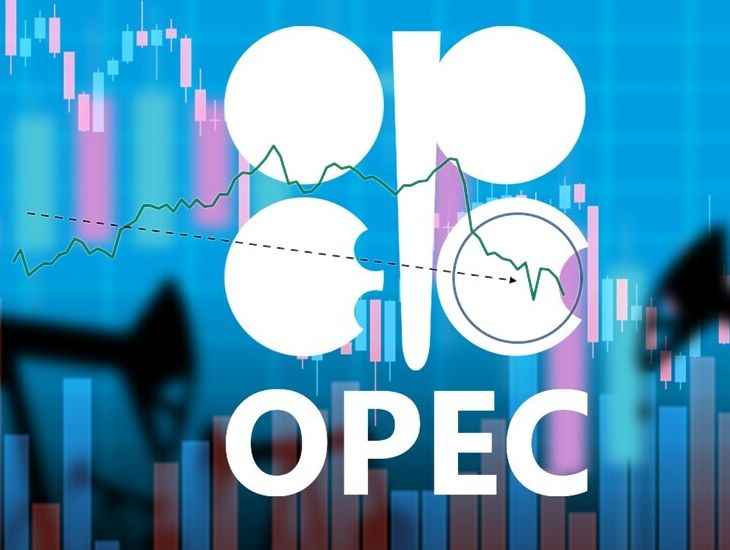Saudi Arabia and Russia have announced a surprise cut in crude oil output, sending shockwaves through the industry and sparking discussions about the potential implications for the global economy.

In a remarkable turn of events, the global oil market is witnessing a significant surge in prices as two major oil-producing nations, Saudi Arabia and Russia, have decided to cut their crude oil output. This unexpected move has sent shockwaves through the industry, causing a substantial rise in oil prices and sparking discussions about the potential implications for the global economy.
This announcement came as a surprise to many, as both countries have traditionally pursued different strategies in the past. While Saudi Arabia has often acted as the swing producer, adjusting its output to stabilize oil prices, Russia has generally prioritized market share and aimed to increase production. However, this recent collaboration between the two nations marks a departure from their previous approaches.
What led to the sudden surge of change?
Several factors have contributed to Saudi Arabia and Russia’s decision to cut crude oil output. Firstly, the ongoing COVID-19 pandemic has created uncertainty in the global economy, leading to reduced oil demand. By reducing production, these countries aim to balance the supply-demand dynamics and prevent a potential oversupply that could further depress oil prices.
Furthermore, both nations are likely aware of the growing environmental concerns and the shift toward renewable energy sources. By limiting their crude oil output, Saudi Arabia and Russia may be positioning themselves as responsible energy players, taking steps to address climate change and promote sustainability.
Saudi Arabia’s decision to extend its oil production cut through August gave a slight boost to oil prices on Monday. The cut, which was announced at the latest meeting of the OPEC+ coalition of oil producers, raised concerns that gasoline prices for US drivers could start to rise.
Effects on the Oil Market
The impact of this unexpected production cut has been immediate and substantial. Oil prices have experienced a significant surge in response to the reduced supply. This development is a welcome relief for oil-producing nations heavily reliant on oil revenues to fund their budgets and drive economic growth. It also provides a respite for oil companies and investors who have faced a challenging period of low prices and reduced profitability.
However, higher oil prices can have mixed effects on the global economy. While oil-exporting countries benefit from increased revenues, oil-importing nations face higher energy costs, potentially impacting their economic growth. Additionally, rising oil prices can lead to inflationary pressures, affecting consumer spending and overall business operations.
Consequences and Implications
The decision by Saudi Arabia and Russia to cut crude oil output carries several implications for various stakeholders. Firstly, other oil-producing nations may face pressure to follow suit, either due to market dynamics or in response to geopolitical considerations. This could lead to further production cuts, ultimately affecting the global oil supply.
Secondly, renewable energy sources and alternative fuels may gain increased attention and investment as countries strive to diversify their energy mix and reduce their reliance on fossil fuels. Higher oil prices may provide additional motivation for the development and adoption of cleaner energy solutions.
OPEC’S Perspective
Within the OPEC community, the production cuts by Saudi Arabia and Russia have received mixed responses. While higher oil prices are generally welcomed, some member countries are concerned about the potential negative consequences of reduced output. These concerns stem from the fact that some OPEC nations heavily rely on oil revenues to support their economies and public welfare programs. For them, the short-term benefits of increased prices might be overshadowed by long-term revenue losses resulting from reduced production levels.
However, other OPEC members view the production cuts as a necessary step to stabilize the market and mitigate the adverse effects of oversupply. These countries understand the importance of balancing supply and demand dynamics to achieve sustainable oil prices, which ultimately benefits the entire OPEC community. By reducing output, OPEC nations can potentially safeguard their long-term interests and preserve the value of their oil reserves.
In conclusion, while the decision aims to address market dynamics and promote responsible energy practices, its consequences are far-reaching. The effects of higher oil prices on the global economy, the potential for increased production cuts, and the accelerated shift towards renewable energy are factors that will continue to shape the energy landscape in the coming years.
(Harshita is pursuing a post-graduation in International Relations. She has an undergraduate degree in Global Affairs with a specialization in social sciences and humanities. She is a certified French speaker. Opinions expressed are the author’s own.)
References :
- Laura Sanicola, ‘Oil settles lower as economic jitters outweigh supply cuts’ (Reuters)
- Saudi Arabia and Russia are cutting oil supply again to boost prices (Millennium Post)
